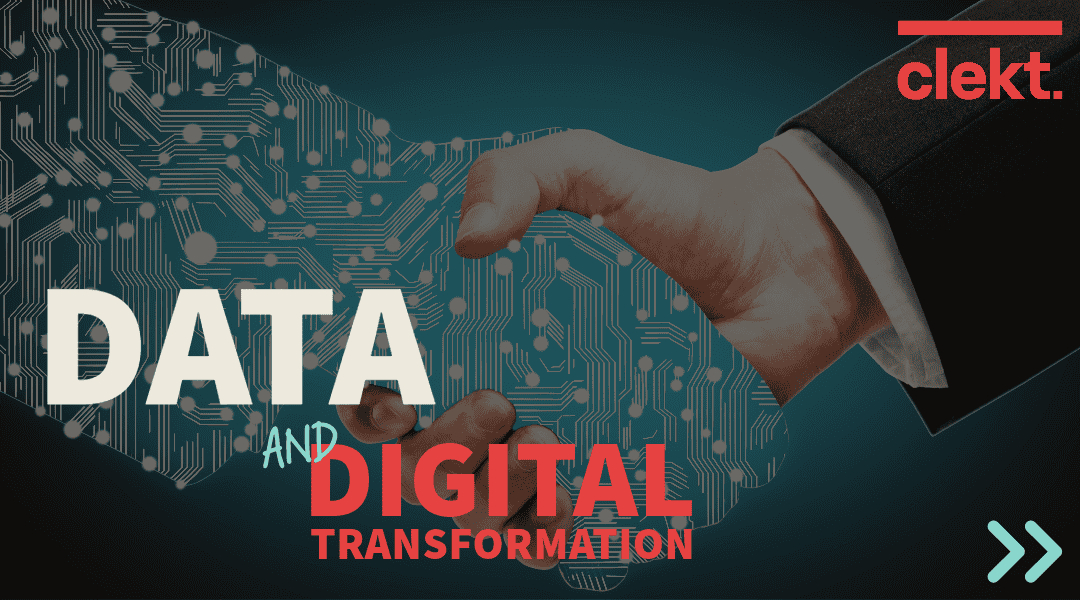
In our fast-paced and ever-changing digital landscape, businesses are continually on the lookout for innovative strategies to maintain their competitive edge and drive growth. When this is considered in our reality of ever-evolving technologies it becomes clear why successful digital transformation isn’t solely linked to rapid scaling and exponential growth but is also intrinsic to mere survival.
Why is Data Key to Digital Transformation?
The centrality of data within the context of digital transformation cannot be overstated and covers the following areas:
Customer, people, change, innovation, leadership, and culture.
The term Digital transformation implies replacing core operational systems and upskilling team members to do their job more efficiently. This is a rare opportunity to review business processes, Therefore, it’s imperative to consider at this stage how data is made more visible in the business and how the company arms people to drive commercially valuable insights from their data.
Effective use of data will also identify where inefficient processes and systems need to be upgraded or replaced as well as track the impact and commercial upside of any digital transformation programme.
Data and Transformation Strategies
As organisations adopt digital transformation initiatives, the ability to harness and leverage data effectively becomes a linchpin for success.
Data not only serves as a critical tool for understanding customer behaviour, market trends, and competitive landscapes but also empowers leaders to make informed & proactive decisions. From optimising operational efficiencies to driving product development and enhancing customer experiences, data acts as the cornerstone upon which transformative strategies are built.
Data Informing Investment
Without data informing the evolution of these strategies, supported by senior-level experience and understanding, sizable investments are made on gut feel alone. In the modern business landscape, this is not a sustainable model and will inevitably lead to failure. This is particularly critical given the level of investment digital transformation programmes require.
Re-Define Agility with Data
In an era where agility and adaptability are paramount, the real-time insights derived from data analytics provides an irrefutable competitive edge, allowing senior executives to navigate uncertainties and capitalise on emerging opportunities.
Data Culture: A Top Priority for C-Suite Executives
As stewards of their organisations’ future, the C-suite must champion a data-driven culture, recognising that the intelligent use of data is not just a technological imperative but a strategic necessity for achieving enduring success in the digital age.
There are often data champions throughout all levels of business. A top-down approach to nurturing an understanding of the power of data to drive business growth and opportunity encourages the adoption of a data culture throughout.
Aspects of Data to Consider in Your Digital Transformation
All senior executives regardless of department have a role to play within an organisation’s digital transformation and as such should pose the following questions:
- How can data help my organisation make better investment decisions before and during digital transformation?
- What challenges do we face when considering the data element of our digital transformation strategy?
- What steps can be taken to ensure data security during digital transformation?
- How can our organisation leverage data to create a culture of innovation and continuous improvement?
- What big technical efficiencies can be gained by improving data in advance or alongside a digital transformation?
Data Partner and Digital Transformation
When is the ideal time to bring a data partner into your digital transformation journey and why is it a vital step in the process?
The best time to add a data partner into the mix is before embarking on any digital transformation. Launching with a data audit sets the scene and supports senior leaders in understanding how to leverage data and build a roadmap to achieve your required business outcomes in conjunction with your business and technology strategy.
Get in touch for a free data audit and conversation about data in your organisation.